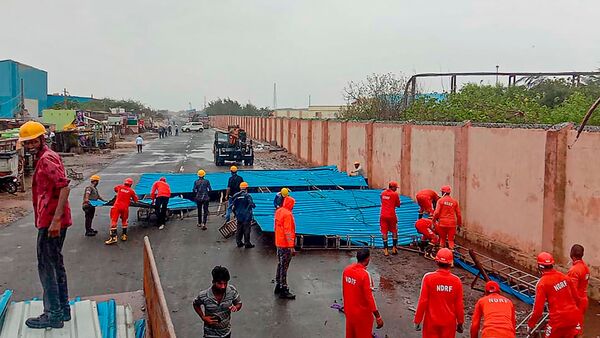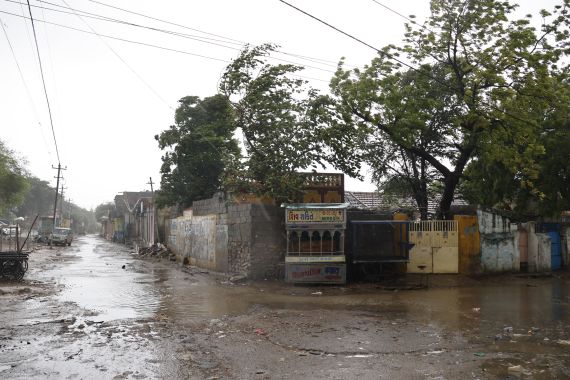A review discussion is taking place between Prime Minister Narendra Modi and Minister of Home Affairs Amit Shah in preparation for the powerful cyclone Biparjoy, which is anticipated to impact Gujarat on June 15 before moving towards Pakistan. The truth is that such natural disasters have a major influence not only on lives but also on infrastructure and the economy, which have seen significant progress over the years, despite the criticism that they are biased toward their home state.
Biparjoy is expected to make landfall between Gujarat and Karachi in Pakistan, with maximum wind speeds perhaps exceeding 150 kph, according to the India Meteorological Department (IMD).
The Saurashtra and Kutch coasts in Gujarat have received a “red” signal from IMD due to the likelihood of significant damage. The worry, though, goes beyond the immediate effects and raises issues about the necessity of improving infrastructure development and economic governance in India in response to the rising frequency of cyclones, which experts ascribe to global warming.

image source:https://www.livemint.com/lm-img/img/2023/06/16/600×338/Biparjoy_1686895911584_1686895912061.jpg
Experts stress the necessity of adequately preparing for climate shocks and harsh weather in Asia, particularly in nations like India. The financial services lead at Economist Intelligence Unit, Swarup Gupta, emphasizes the need for preventative steps and the likelihood that the effects of climate change will worsen.
Financial troubles have been experienced by daily wage workers like fishermen, port workers, and workers on oil rigs as a result of the cyclone, which has already forced the evacuation of thousands of people and innumerable animals. Export interruptions are affecting businesses, and the government will need to set aside a sizable amount of money for post-disaster aid activities.
Due to the imminent natural disaster, Reliance Industries, the owner of the largest refining plant in the world, has stopped shipping diesel and oil products from Gujarat’s Sikka port. With a production capacity of 704,000 barrels per day, this port is essential for shipping diesel to Europe, which has become more dependent on imports from Asia as a result of EU sanctions against Russia.
Significant economic damage is caused by powerful cyclones. In 2019, Cyclone Fani reportedly cost Odisha an estimated Rs 9,336.26 crore in damages. Cyclone Amphan, which made landfall in India-Severe cyclones have far-reaching effects in addition to immediate destruction. Power outages, disrupted water supply systems, severe disruptions in transportation systems, potential increases in food prices due to crop damage, financial burdens on state and federal governments as they work to reduce fiscal deficits, difficulties in providing healthcare services for the injured and displaced, and severe disruptions to trade and commerce.
India’s economy depends heavily on agriculture, which takes the brunt of cyclonic wrath. Fertile areas transform overnight into wastelands, and crops are destroyed.
The Modi administration has prioritized infrastructure investment, allocating a record 10 lakh crore rupees for it in this year’s budget. Additionally, over the next five years, India expects to invest more than 100 lakh crore rupees in a network of social and economic infrastructure projects known as the National Infrastructure Pipeline.
Roads, bridges, and power lines that were constructed with borrowed money and public funds suffer initial damage from cyclones.
In conclusion, the review talks between Prime Minister Modi and Minister of Home Affairs Amit Shah before Cyclone Biparjoy highlight the seriousness of the issue. To prevent severe damage to life, infrastructure, and the economy, the essay emphasizes the necessity for increased infrastructure development, economic policy measures, and preparedness.

